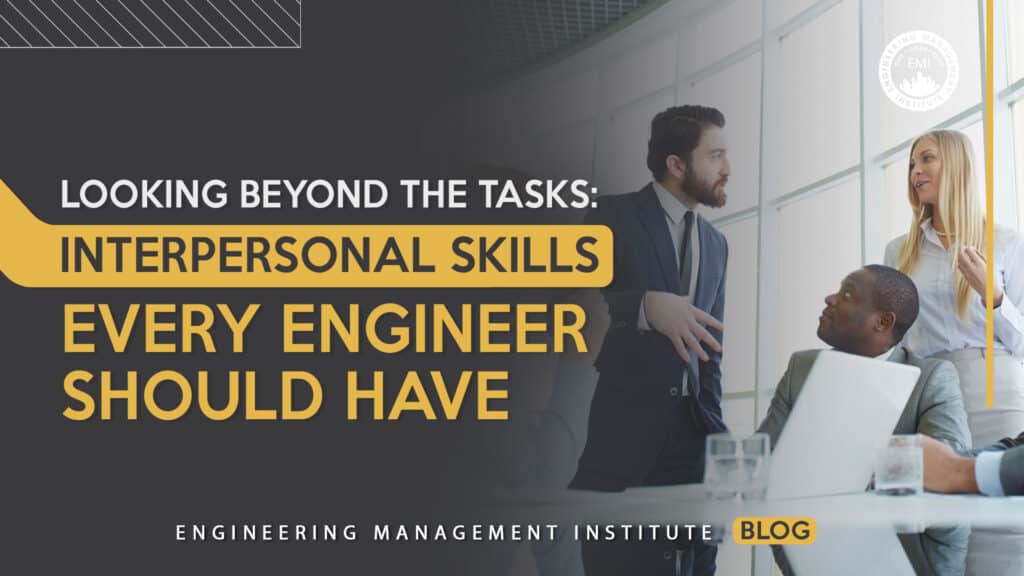Engineers play a vital role in their workplaces. They are the people that keep things going, that make the company work, and that do the work behind the scenes that keep profits coming in. While some engineers think their contributions should be kept within their department, the truth is that engineers bear as much weight on the interpersonal dynamics of a company as any other employee. If you are an engineer who wishes to improve his or her career prospects or who wants to figure out how to contribute more to the workplace, you should consider brushing up on the interpersonal skills discussed below.
Clear Communication
There’s a stereotype that engineers aren’t good at conversation. This is patently untrue – engineers are great at expounding on their ideas and can show a great deal of contagious enthusiasm. What many aren’t so great at, though, is communicating in a manner that is clear to those outside the field. According to CNN, the ability to communicate clearly is one of the most sought after skills in the workplace. Your job isn’t just to know what you are doing, but to be able to parse that data and communicate it in a manner that others can understand.
Collaboration
A good engineer spends years or even decades honing his or her skills. Unfortunately, no matter what field you are in, some skills fade with time. According to the pharmaceutical sales training company Shapiro Negotiations, “Relationship building abilities and emotional intelligence, too often, are forgotten…” Most engineers tend to specialize, and this leads to workplaces in which only one person really understands exactly what’s going on when it comes to a specific project. If you want to get ahead in the workplace, you’ll learn how to build relationships and share your information in a manner that makes collaboration easier. For some, this means learning better methods of teaching. For others, it means learning how to accept help from those who might not have the same level of technical knowledge that they possess. In either case, collaboration is an important workplace skill.
Being a Leader
While many engineers might believe in the Peter Principle, the truth is that leadership is an important interpersonal skill that every engineer needs to learn. While being the leader of a team or a manager might not be your career goal, it’s important that you can show your ability to take your knowledge and use it to improve the work of others. This means learning to find value in work that is outside of your field, figuring out how to best use the skills of your team members and learning how to take responsibility for mistakes even when it’s not your fault. Leadership is a key skill that will help you to climb the career ladder.
Adaptive Thinking
According to Forbes, some of the most successful tech companies are now looking for people who are able to think about technical products like BPM software as a consumer, not as an engineer. While your technical skills are what brought you to the table, it’s just as important to be able to look at things from the angle of those who don’t have your skill set. The ability to turn off your process-oriented mindset and look at the world through the eyes of another is something that’s important not just in the world of engineering, but in any field that requires working with customers.
Interpersonal skills are every bit as important as technical skills in the workplace. Investing time in learning these skills will not just make you a better employee, but will also make you a more well-rounded engineer. While your time is precious, it’s important that it’s spent learning the things that will help you in your career. With a little brushing up on your interpersonal skills, you may find your workplace very different.
About the Author Carol Evenson:
Carol Evenson is a process automation consultant who specializes in systems management. She has worked alongside Fortune 1000 companies and currently assists organizations within the the US and UK.
We would love to hear any questions you might have or stories you might share on Interpersonal Skills.
Please leave your comments, feedback or questions in the section below.














